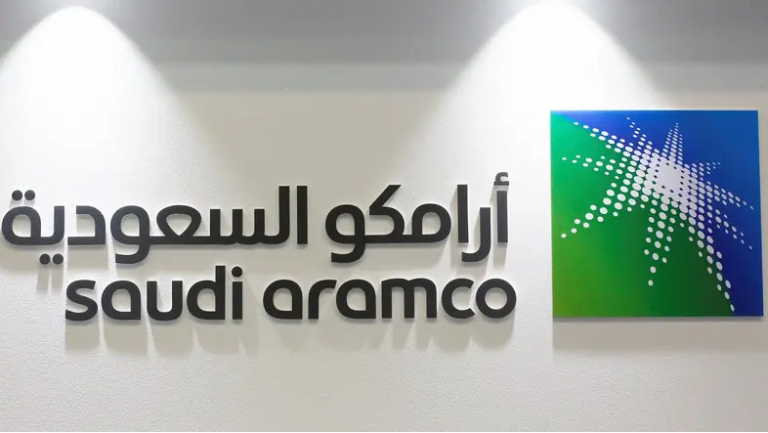
Saudi Arabia has set a record initial public offering in history, pulling off a $25.6 billion sales in shares of its $1.7 trillion valued state owned oil.
A total of 3 billion shares were sold at 32 riyals ($8.53) each in its IPO, making it the biggest in history. Alibaba was holding the record since 2014 when it raised $25 billion in its IPO.
The Aramco’s IPO will be listed locally on the Tadawul, Saudi Arabia’s stock exchange. Crown Prince Mohammed bin Salman has unveiled his plan to diversify the country’s economy and move concentration away from oil. Though the IPO fail short of its targeted $2 trillion valuation, there is no sign it’s going to be a hindrance to anything.
Register for Tekedia Mini-MBA edition 19 (Feb 9 – May 2, 2026): big discounts for early bird.
Tekedia AI in Business Masterclass opens registrations.
Join Tekedia Capital Syndicate and co-invest in great global startups.
Register for Tekedia AI Lab: From Technical Design to Deployment (next edition begins Jan 24 2026).
Some experts have described it as a “hollow win,” saying that they needed to rely predominantly on local investors after cancelling roadshows in London and New York due to low international interest.
The president of Transversal Consulting, and author of the book “Saudi, Inc.” Ellen Wald, told CNBC: “The local demand from retail investors wasn’t as high as Saudi Arabia hoped for. The investments were almost entirely local and attracted no money from outside the region, oversubscription was not significant. Most IPOs are oversubscribed many more times over and the government had to manufacture demand, even from Saudis.”
Prior to the pricing announcement, there was a weeklong local roadshow around the Middle East, prompting the oversubscription of the listing by nearly three times, attracting offers worth 189.04 billion riyals ($50.4 billion), according to banks advising the listing. Institutional investors have between November 17 and December 4 to place their orders.
Before now, Aramco has promised that 0.5% of its listed shares would be available to individual retailer buyers, while 1% will remain for institutional investors. But the remaining 1% is equivalent to 2 billion shares, and in the first 2 and a half weeks of Aramco’s book building period, it drew subscription orders for 5.9 billion.
So far, demand from institutional investors, including Saudi funds and companies, has reached $106 billion, while retail investment’s demand hit $12.6 billion. The purchase has been centered on Saudi Arabians and countries in the Middle East. Around 4.9 million Saudi retail investors have bought shares in the oil giant, including 2.3 million between the ages of 31-45.
Aramco’s advisors said the “greenshoe”option may be fully or partly exercised at 15%, allowing it to increase the size of the deal to a maximum of $29.4 billion. But the Organization of the Petroleum Exporting Countries (OPEC) is getting ready once again for oil cuts to support prices, depending on its ability to get a deal with members such as Russia this weekend.
Other concerns have been fingered as the reason the IPO couldn’t sell internationally: Climate change, political risk and a lack of corporate transparency. The kingdom had planned to raise $100 billion via international and domestic listing of 5% stake, but ditched the plan due to lack of interest from overseas buyers.
It’s all part of Prince Salman’s ambition to sell a large portion of the kingdom’s oil and use the proceeds to establish a tech-based economy. But Monica Malik, the chief economist at Abu Dhabi Commercial Bank said the fund raised by the IPO is enough to sustain the ambition.
“The amount raised by the IPO itself is relatively contained given the size of the economy and medium-term funding requirement of the transformation plan.
“Nevertheless, combined with other areas of funding, we believe that there is meaningful capital in place to progress with the investment plans aimed at diversifying the economy,” she said.
However, foreign investors attitude toward the IPO showed that Saudi is yet to better its relationship with the rest of the world, especially the West. The murder of Jamal Khashoggi, the Saudi journalist who was killed in Saudi’s consulate in Istanbul created a strain that the kingdom is yet to clean off. And there is its involvement in the Yemen war that has attracted international condemnation.
The quest for cleaner energy is another factor that may have hindered foreign investors from purchasing from the IPO. European countries are at the forefront of the fight against climate change. Moreover, oil prices and growth in global demand are expected to crash by 2025 due to efforts to cut greenhouse gas emissions and prevalence of electric cars.



